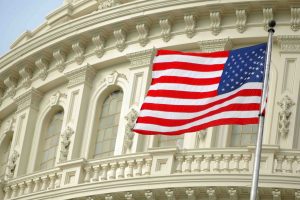On July 30, 2024, the Senate passed the Kids Online safety and Privacy Act (KOSPA) in a vote of 91-3. KOSPA is the product of combining two high profile child online safety bills in the Senate, the Kids Online Safety Act (KOSA) and the Children and Teens’ Online Privacy Protection Act (COPPA 2.0).
By itself, KOSA creates a series of protections for minors under 17 years of age. It implements a “duty of care” for social media platforms, mandating that companies work to mitigate physical and mental health harms for minors caused by the designs of platforms, requires stronger default privacy settings, gives greater content control to minors, and requires additional parental control tools.
COPPA 2.0 is an amendment to the Children’s Online Privacy Protection Act (COPPA), which restricts data collection for minors under age 13. COPPA 2.0 tightens those restrictions, giving the government more leeway to enforce the statutes, and extending COPPA protections to those ages 13-16 years old.
As the newly minted KOSPA, KOSA and COPPA 2.0 moved through the Senate together, and will now be sent to the House of Representatives. However, the House is considering its own separate versions of KOSA and COPPA 2.0, each of which faces roadblocks from both Republicans and Democrats. At this juncture, it is unclear if the House will take up the Senate version of KOSPA in earnest, or try to wrestle through their own versions of KOSA and COPPA 2.0. Despite optimism from Senate champions of KOSA, Speaker Mike Johnson has not committed to advancing KOSPA. We will learn more when the House returns from their August recess in September.
State-level legislation also faces an uncertain future. In July, the Supreme Court ruled on two cases involving laws passed in Florida and Texas that restrict how social media platforms moderate content. These laws were related to political content and profiles, not children. The Supreme Court returned these cases to the lower courts for reevaluation, but affirmed that content moderation is protected under the First Amendment. This complicates all lawsuits challenging state laws attempting to regulate social media. Challenges to state social media regulations frequently include First Amendment complaints, meaning lower courts hearing these cases now must consider the Supreme Court’s recent decision.

